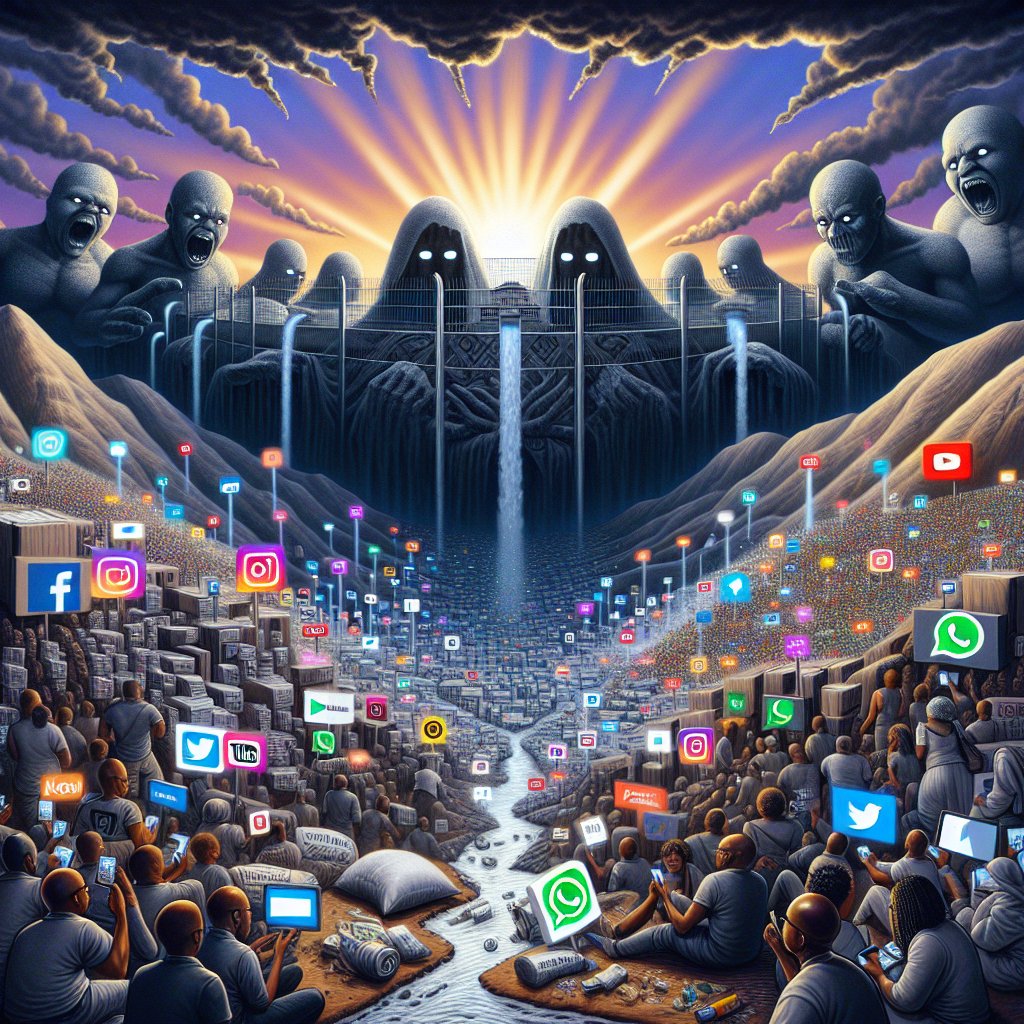Content created by AI
Navigating the Digital Battleground: Safeguarding South Africa's 2024 Elections from AI-Driven Disinformation
In the dynamic landscape of South African politics, the 2024 elections are on the horizon, heralding a new chapter in the nation's democracy. In a world increasingly influenced by digital platforms, this upcoming election is projected to be among the most consequential and defining since the epochal end of apartheid. Yet, alongside the escalating excitement, a shadow looms large: the specter of digital disinformation amplified by artificial intelligence.
As the country braces for the crescendo of political activity, the South African Electoral Commission issues a poignant warning: the unchecked spread of digital falsehoods threatens the very integrity of the elections. It's an alarm that echoes through the corridors of power and into the cybernetic alleyways where public opinion is both shaped and shattered.
The Commission's concerns are not unfounded, as South Africa joins a global array of over fifty nations hosting elections in a year set to break records. With 25.80 million citizens actively engaging on social media platforms as of January 2023, comprising 42.9% of the population according to DataReportal, the fertile ground for digital discourse also becomes a battleground for truth.
Lorato Tshenkeng, a renowned social media analyst, cautions against the seductive lure of deepfake videos. These meticulously crafted pieces of visual trickery utilize generative artificial intelligence to clone the identity and voice of high-profile individuals, weaving a tapestry of deception often indistinguishable from reality.
As the digital democracy amplifies the voice of the masses, it concurrently gives rise to nefarious actors armed with technological prowess, aiming to steal and manipulate identities for their subversive agendas. Tshenkeng points out that, while much of the spotlight has been on social media giants like Facebook, X, TikTok, and YouTube, the often overlooked giant in the room is WhatsApp – an app pervasively used and trusted amongst South Africans.
In a commendable stride towards safeguarding digital integrity, the Electoral Commission has joined forces with dominant tech players, including Google, TikTok, and Meta, the parent company of platforms such as Facebook, WhatsApp, and Instagram. This collective initiative strives to combat the tide of disinformation and fabricated news stories, urging voters to exercise a heightened sense of discernment.
The influence of social media and artificial intelligence on South Africa’s 2024 elections remains, for now, a topic of speculation and anticipation. As the nation inches closer to this pivotal moment, the call for vigilance and critical evaluation of information is not just advice—it's a civic imperative.
In the face of this technological onslaught, the Electoral Commission's message is clear: the integrity of South Africa’s electoral process must be preserved. This resolve must be matched with robust digital literacy among the electorate, ensuring that each vote cast is informed not by the shadows of deceit, but by the light of truth.










